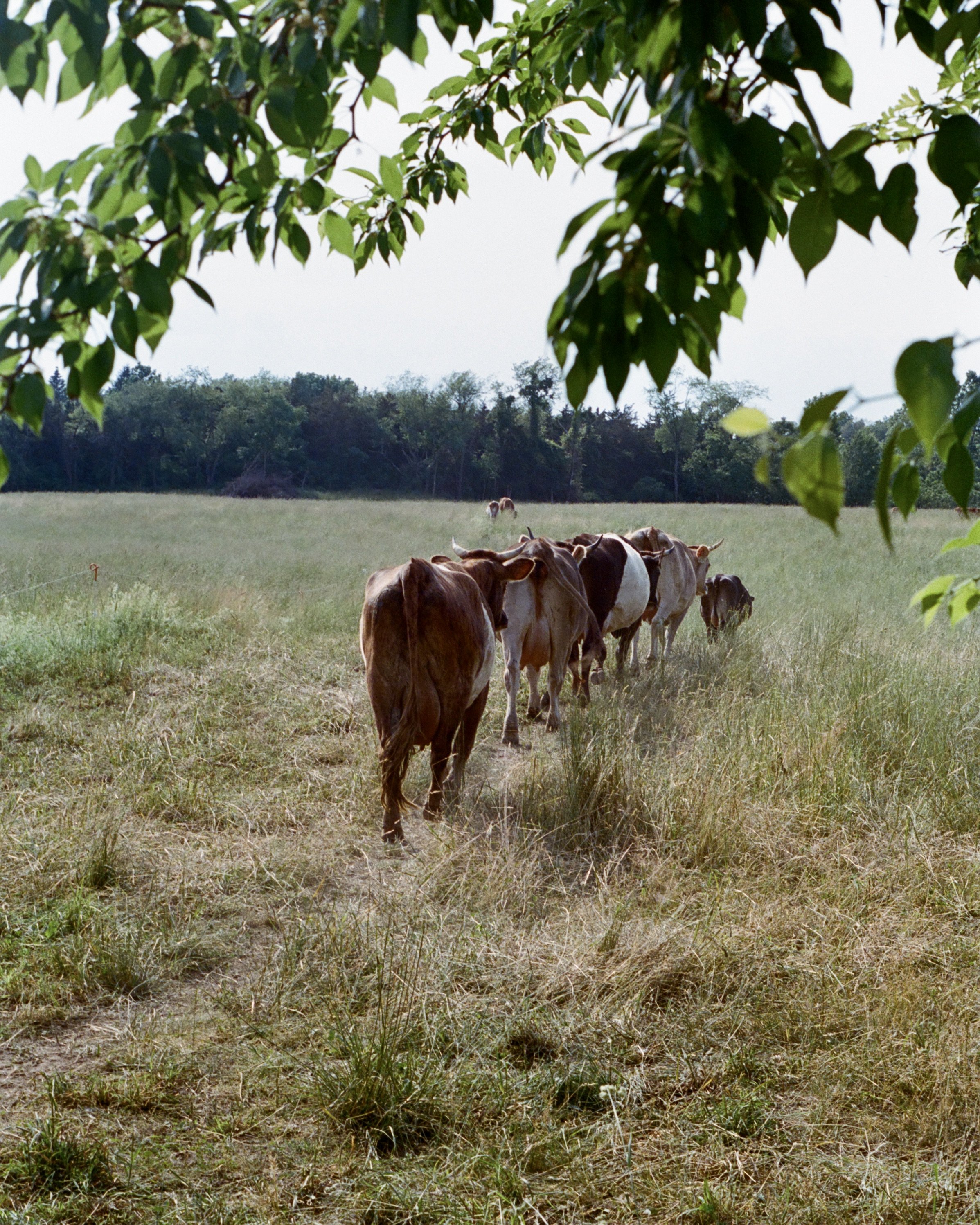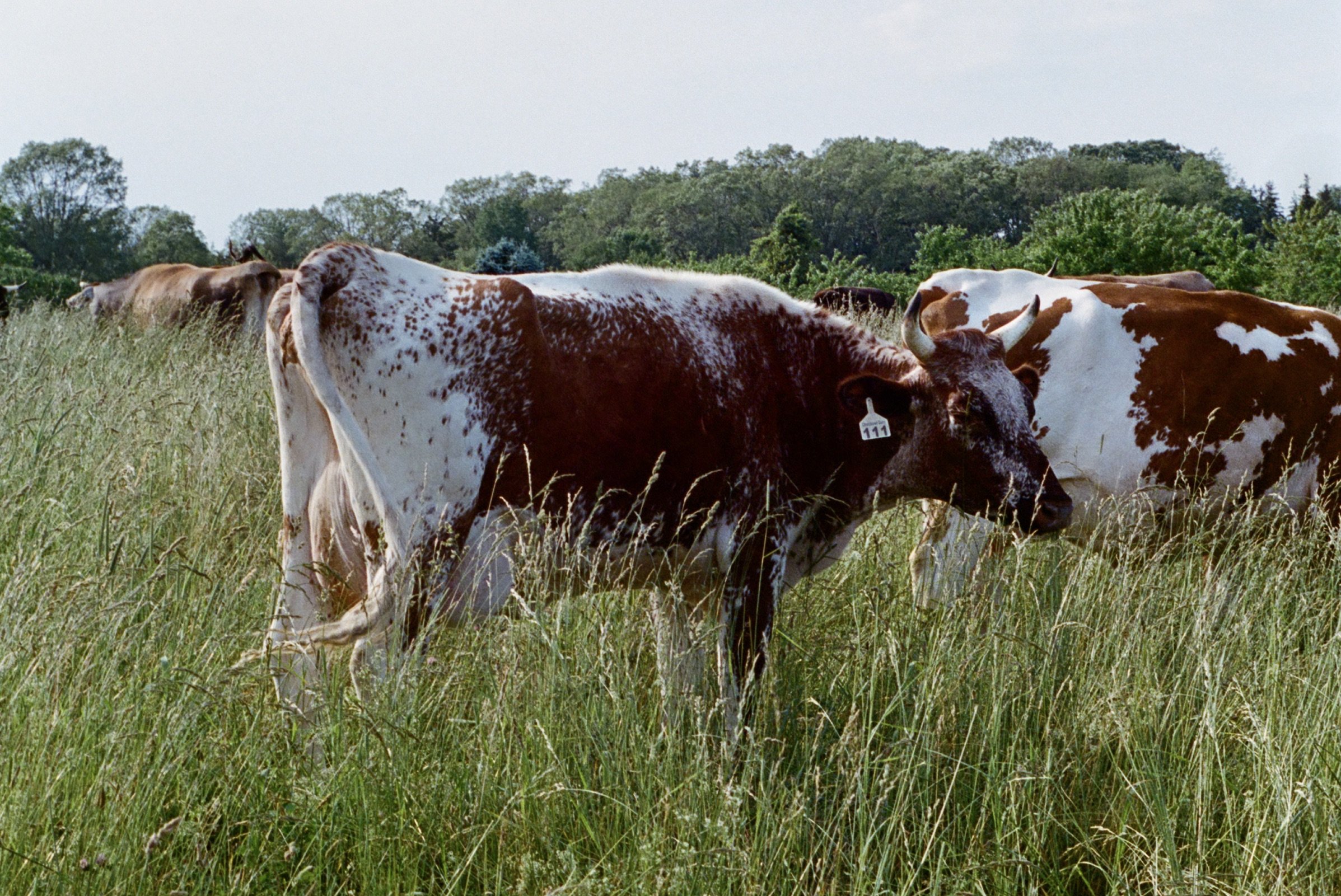Composting
At Churchtown, we don't consider manure to be waste. It is an essential contribution from the cows in their relationship to the fields. As much as the cows need lush pasture to graze, the pastures need healthy ruminants to feed the soil. When cows are on pasture, manure and urine are spread across the fields. Worms, dung beetles and other organisms process the manure and create bioavailable nutrients for the plants. When cows remain in the barn, we take on the responsibility for processing the mixture of manure, urine and straw that builds in the barns over winter.
Each spring, we "muck out" the barns with a skid steer and form 80 foot rows of "bedded pack" material that becomes biologically active in the warmer weather. Using a compost turner pulled by a tractor, we turn the piles periodically to incorporate oxygen that is depleted by the aerobic bacteria converting the material into stable compost. The process is time and material intensive, but results in a number of key improvements to the soil.
Firstly, compost is not water soluble, which means it won't leach through the soil during heavy rain events when applied to the fields. Secondly, the nitrogen and other compost components are in a form more readily utilized by the plants. Thirdly, the active community of microbes formed in the compost piles are introduced to the fields and interact synergistically with the plants. Beyond this, we also treat our compost piles biodynamically, adding potentized energies from various plants to introduce even greater balance and complexity to the finished compost. Though this requires more attention and time than simply spreading manure in the fields, our compost adds critical soil improvements that create an upward spiral of fertility on the farm.


